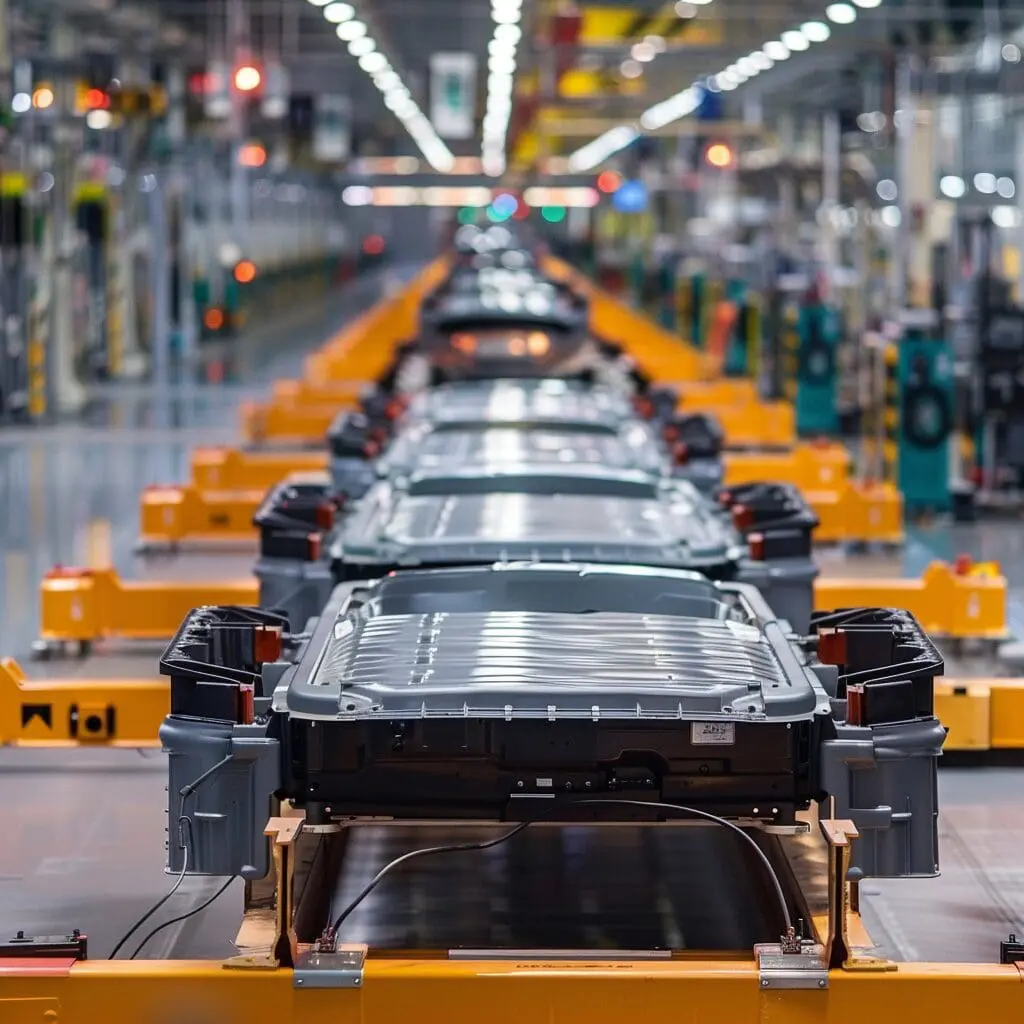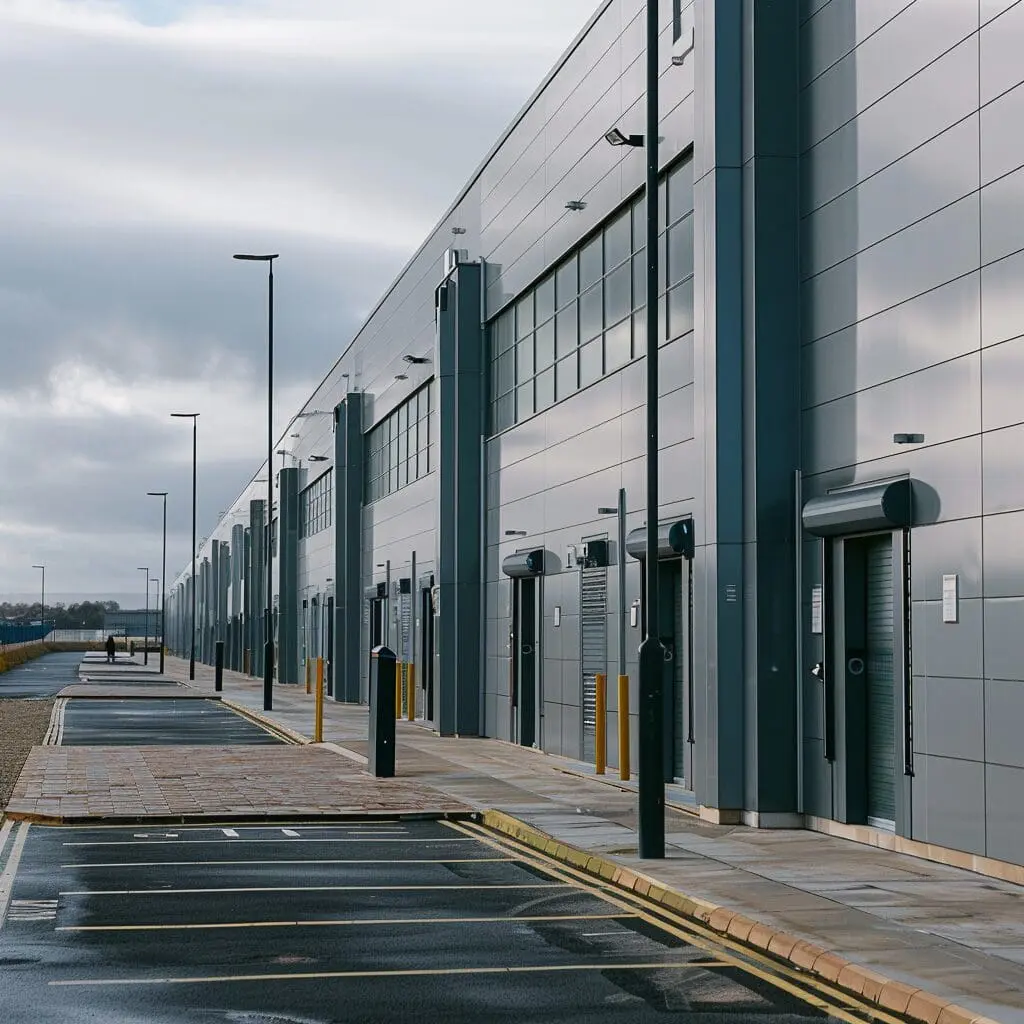

In a bold move highlighting its dedication to the green energy revolution, Tata Group has announced a significant £4bn investment in ‘Agratas’, the UK’s largest electric vehicle (EV) battery manufacturing facility in Somerset. This strategic investment not only positions Somerset at the heart of the UK’s green energy movement but also aims to boost regional economic growth and create around 4,000 jobs. With a focus on sustainability, the Agratas factory is poised to transform EV battery production by supplying half a million passenger vehicles annually with cutting-edge battery technology by the early 2030s. The initiative also underscores its commitment to powering operations with renewable energy. This milestone marks a new chapter in clean energy production, establishing Somerset as a key player in environmentally responsible manufacturing, supported by the UK government and contributing to the evolution of the UK car industry.
In a groundbreaking development, Somerset is poised to lead the UK’s green energy revolution with Tata Group’s substantial £4bn investment in the Agratas factory. This initiative not only positions Somerset as a key player in the global shift towards sustainable energy but also significantly boosts the local economy by creating 4,000 skilled jobs. Focusing on powering the plant with renewable energy sources and committing to sustainable practices, the Agratas factory will transform the electric vehicle (EV) battery manufacturing sector, solidifying Somerset’s status as a hub for clean energy production. This ambitious project encapsulates innovation and environmental stewardship, propelling the region towards a future of green energy leadership in battery research and supply for motor manufacturers.
The monumental £4bn Tata investment into Somerset’s landscape is not only a stride towards environmental sustainability but also a significant economic boon for the region. The establishment of the Agratas factory, poised to be the UK’s largest electric vehicle (EV) battery production facility, is anticipated to galvanise the local economy by creating up to 4,000 jobs. This influx of employment opportunities, coupled with a substantial investment in the local supply chain for battery supply, sets the stage for Somerset to become an international nexus for clean energy production and innovation. At its core, this initiative reflects an exemplary blend of industrial growth and environmental stewardship, destined to foster economic prosperity and elevate Somerset’s stature on the global map of sustainable development, benefiting Jaguar Land Rover and the electric vehicles sector.
In a world increasingly driven by the need for sustainable solutions, companies operating in the global transition era must focus on sustainable supply chain practices. The initiative by Tata Group to power the Agratas factory with renewable energy is a testament to the organization’s commitment to environmental stewardship and net zero commitments. This bold move not only aligns with global efforts to reduce carbon footprints but also sets a new standard for manufacturing practices worldwide. By harnessing clean energy sources to fuel one of the UK’s largest electric vehicle (EV) battery factories, Agratas is poised to significantly contribute to the reduction of greenhouse gas emissions across the wider supply chain. This innovative approach underscores the project’s integral role in propelling Somerset and the wider UK towards a brighter, greener future, cementing its status as a beacon of sustainable industrial development.
In an era where corporate responsibility and community relations are more critical than ever, Agratas’ commitment to fostering a strong connection with the local community in Bridgwater sets a commendable precedent. By implementing various channels such as leaflets, a dedicated community WhatsApp channel, and organizing introductory events, Agratas goes beyond just informing residents about the forthcoming developments. These initiatives demonstrate a genuine dedication to inclusivity and transparency, ensuring that the local populace is not only kept in the loop about the project’s progress but also actively engaged in a dialogue. This approach not only reinforces Agratas’ commitment to sustainability but also highlights the value placed on creating meaningful and beneficial relationships with the communities within which they operate, thereby ensuring that the enormous economic and environmental benefits of the project are understood and supported at the grassroots level. Furthermore, the company is actively investing in emission vehicles, skilled workers, energy prices, a battery factory, and electric vehicles to drive forward their sustainable initiatives.
In a strategic move aimed at maximising the socio-economic benefits of the Agratas initiative, Tata Sons has initiated a collaborative venture with local educational institutions and businesses in Somerset, including Coventry University, to create thousands of jobs. This partnership aims to cultivate a skilled workforce to meet the demands of the burgeoning global green energy sector, particularly in batteries, through tailored training programs and apprenticeships. The focus is not only on immediate job creation, with an anticipated 4,000 positions at the new factory, but also on establishing sustainable career paths in renewable energy and advanced manufacturing. By aligning workforce development with the projected needs of the Agratas factory, this initiative ensures that the local community will not only participate in the green revolution but also emerge as leaders and innovators propelling it forward. This comprehensive approach to development, blending job creation with educational opportunities, establishes a precedent for how industry and community collaboration can foster mutual growth and advancement.
In an ambitious stride towards a net-zero future, the Agratas factory, backed by a £4bn investment from Tata Group and Jaguar Land Rover, is pioneering a sustainability-first approach in electric vehicle (EV) battery production. This colossal project in Somerset is not only set to revolutionise the UK’s clean energy production landscape but also signifies a quantum leap towards achieving global environmental sustainability goals and the global transition to cleaner modes of production. By employing cutting-edge technology and innovative manufacturing processes powered entirely by renewable energy sources at the new gigafactory, Agratas is trailblazing a path for the industry, showcasing how large-scale manufacturing can harmonise with ecological preservation efforts. This commitment to sustainability extends beyond energy consumption, with the project poised to significantly reduce greenhouse gas emissions and set new benchmarks for the entire EV battery manufacturing sector on a global scale. Agratas’s dedication to a net-zero future underscores the project’s crucial role in the transition to cleaner, more sustainable modes of production and energy use, setting a precedent for future developments worldwide, including the Coventry Airport area and the North East region.
In navigating the complexities of the global electric vehicle (EV) battery industry, the Agratas initiative in the UK confronts significant challenges in sustainable mining, production, and transportation practices. Aware of the environmental impact associated with the extraction of raw materials used in battery production, Tata Group’s investment is actively seeking partnerships with mining companies that prioritise ethical and eco-friendly mining techniques. Furthermore, Agratas is revolutionising the production process of batteries by integrating advanced technologies that minimise waste and energy consumption, thereby setting a new industry standard. The transportation of materials and finished products also embodies the project’s commitment to sustainability, with a strategic focus on reducing carbon emissions through logistical planning and the use of renewable-powered transportation solutions. These concerted efforts underscore a huge vote for Tata Gigafactory’s holistic approach to addressing the environmental challenges inherent in the EV battery sector, showcasing a model of how technological innovation and ecological responsibility can go hand in hand.
Agratas’ overarching mission to foster sustainable living is rooted deeply in its groundbreaking efforts within the green energy revolution and its commitment to job creation. The establishment of one of the UK’s biggest electric vehicle (EV) battery factories in Somerset is a testament to this, marking a significant stride towards reducing greenhouse emissions and advancing towards a net-zero future. By forming strategic partnerships with local educational institutes and businesses, Agratas is not just leading in the production of sustainable energy solutions but is also pivotal in shaping a skilled workforce ready to thrive in the green energy sector. These initiatives reflect a conscientious approach towards economic growth, environmental preservation, and community empowerment, illustrating how industrial innovation, when aligned with sustainable practices, can propel significant socio-economic advancements. Agratas stands as a beacon of sustainable industrial development, showcasing the symbiotic relationship between creating high-value jobs, fostering education, and driving the green energy revolution.


